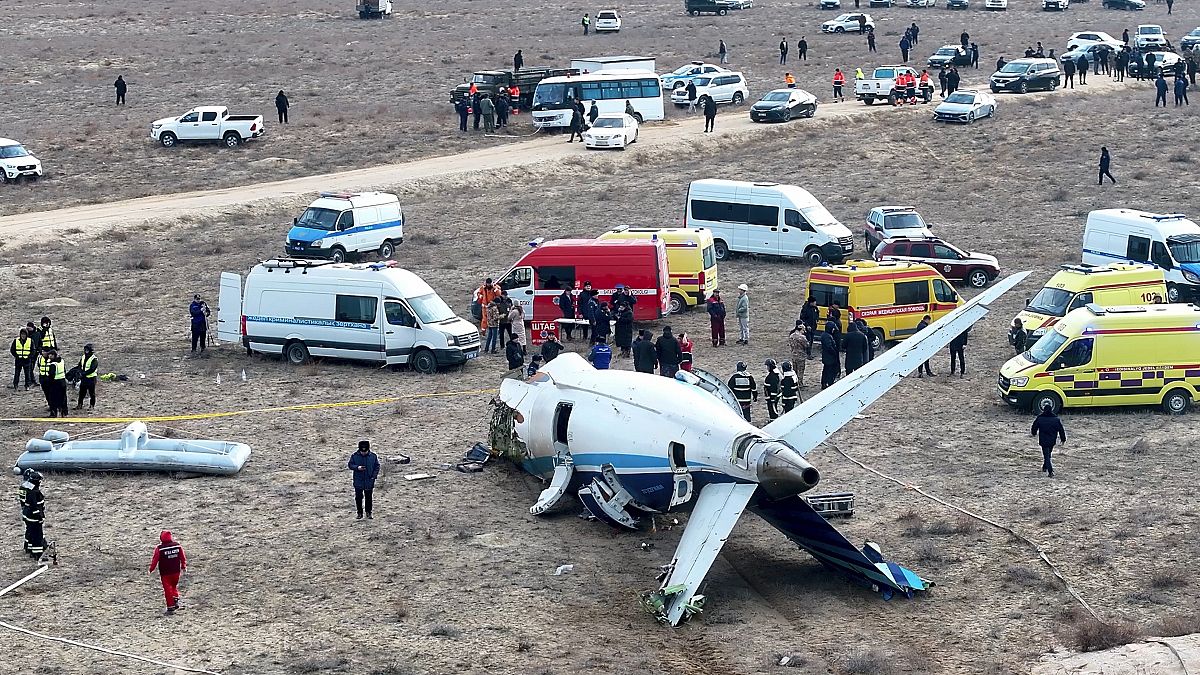Brazilian air force investigators, along with their counterparts from Kazakhstan, Azerbaijan, and Russia, are currently analyzing the black box data from the Azerbaijan Airlines plane that crashed in Kazakhstan on December 25th, claiming the lives of 38 passengers. This collaboration is taking place at the center for investigation and prevention of air accidents in Brasilia. The team is working on extracting and validating data from the flight recorders of the Embraer 190 aircraft, which was en route from Baku to Grozny when it crashed in Kazakhstan after being diverted.
Kazakhstan, Azerbaijan, and Russia have sent a total of nine investigators to Brasilia to work alongside Brazilian experts. The investigation involves analyzing recordings from the cockpit voice and flight data recorders. Brazil’s air force has not set a deadline for the publication of conclusions, indicating that the final report will come from authorities in Kazakhstan. The focus of the investigation is on understanding what led to the crash and the events that transpired leading up to it.
Azerbaijan’s President, Ilham Aliyev, has stated that the aircraft was hit by ground fire over Russia, allegedly rendering it uncontrollable due to electronic warfare. Aliyev has accused Russia of attempting to cover up the incident, expressing surprise and dismay at the versions of events provided by Russian officials. The plane was reportedly denied permission to land at two Russian airports and was diverted to Kazakhstan, where it eventually crashed near the city of Aktau.
Russian President Vladimir Putin has issued an apology to Aliyev for what he termed a “tragic incident.” However, he did not explicitly accept responsibility for the crash. Allegations have surfaced suggesting that Russian air defense systems may have inadvertently targeted the aircraft while trying to repel a Ukrainian drone strike near Grozny. The Kremlin has defended its actions, stating that the air defense systems were engaged in addressing the threat of a Ukrainian drone strike in the region.
The collaboration between investigators from Brazil, Kazakhstan, Azerbaijan, and Russia underscores the importance of international cooperation in understanding aviation accidents. By pooling resources and expertise, the team aims to uncover the root causes of the crash and prevent similar incidents in the future. The focus on analyzing black box data and cockpit recordings is crucial in piecing together the sequence of events that led to the tragedy. As the investigation unfolds, authorities are committed to conducting a thorough analysis and sharing their findings with the public.
The tragic crash of the Embraer 190 aircraft has raised questions about air safety protocols and the accountability of those involved in the aviation industry. The lack of a clear explanation for the crash has fueled speculation and accusations among nations involved in the incident. The ongoing investigation will shed light on the events that took place on that fateful day and provide closure to the families of the victims. The aviation community will closely monitor the progress of the investigation to learn from any mistakes and implement necessary reforms to enhance air safety standards globally.





















